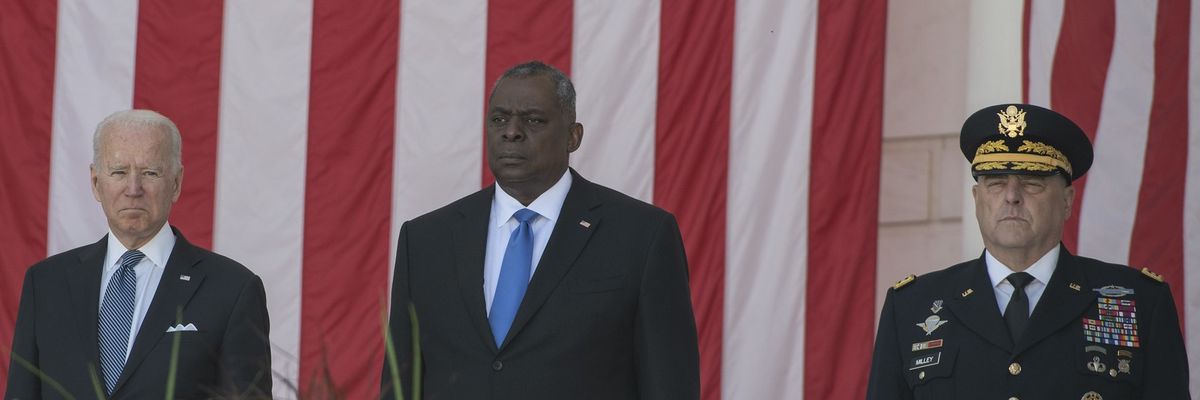Americans’ trust in what used to be our supposedly most trustworthy institution — the U.S. military — continues to plummet, according to a new poll by a leading conservative Republican organization.
The Ronald Reagan Presidential Foundation and Institute found that only 45 percent of Americans polled have “a great deal of trust” in the military, plummeting from 70 percent just two years ago, and down from 56 percent just eight months ago in March. This is higher, however, than the 2021 Gallup poll, which found that 37 percent of Americans have "a great deal" of confidence in the military or "quite a lot" (32 percent). These were the lowest marks since at least 2001.
The foundation’s executive director Richard Zakheim acknowledged that the poll did not drill down on why Americans felt less confident in the military these days, but chalked it up to the events after the George Floyd police killing, when National Guard troops were sent into American cities during the protest, particularly Washington, D.C.
“This general sense of negativity comes mostly from political leadership,” he said, speculating to the Wall Street Journal. “That could be the way elected officials and civilian leaders are politicizing the military.”
While the domestic use of troops during the protests may have some role to play, I am not buying Zakheim's spin. I have written extensively (with more published here at RS) about the growing sense of betrayal and backlash against military leaders during the last 20 years of the post-9/11 wars, culminating in the chaotic withdrawal of Afghanistan in September. The failures of those wars, which Americans clearly see as failures in poll after poll, combined with the increasing politicization of the military over the last few years, has taken the shine off the brass in a big way. Data point: Only 40 percent polled by the Reagan Foundation said they had confidence in the leadership to act in a professional and non-political manner.
Not coincidentally, the Reagan Foundation poll also found that 59 percent of Americans concluded that the war was “mostly a failure,” compared with 50 percent in February. Interestingly though, 49 percent blame President Biden for the badly executed U.S. withdrawal in which 13 servicemembers were killed, while 20 percent cited poor military planning.
While the people may have no faith in the military, 40 percent believe the U.S. should send troops to Taiwan to defend it from a Chinese attack. This is because most respondents view China as the greatest national security threat to the U.S. today — 52 percent, up from 21 percent just four years ago.














